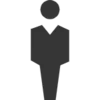Your sleep plays a massive role in the quality of your everyday life. Obstructive sleep apnea repeatedly interrupts your sleep during the night, leaving you poorly rested and struggling through the day.
Symptoms of Sleep Apnea

Snoring Loudly
A symptom often dismissed by many, snoring is a useful indicator for diagnosing sleep apnea. Snoring is caused by the obstruction of the airway that occurs with sleep apnea sufferers.

Morning Headaches
When your sleep is interrupted repeatedly each night, it significantly diminishes the restful quality of your sleep. This leads to waking up with headaches -- a common symptom of obstructive sleep apnea.

Daytime Drowsiness
Some sleep apnea sufferers experience hundreds of brief awakenings each night due to breathing pauses from airway obstruction. This sleep interruption often leads to daytime drowsiness.

Interrupted Sleep
The unifying symptom of all sleep apnea sufferers is interrupted sleep. Sleep apnea causes relaxation of soft tissues that obstruct the airway while sleeping, effectively choking you until you wake up long enough to breathe. This causes countless other symptoms that affect the lives of those with sleep apnea.

Morning Dry Mouth
It is unpleasant to wake up with a dry mouth and a sore throat. When you struggle to breathe easily while sleeping, you may find yourself sleeping with your mouth open. Waking up regularly with excessive dry mouth or a sore throat is one of the common symptoms of sleep apnea.
Sleep Apnea Treatment with Cairn Dental
Most dentists in Golden and the surrounding areas provide a wide array of dental services, but few have the expertise to treat conditions like obstructive sleep apnea. Dr. Brad Berryhill at Cairn Dental has extensive knowledge and the experience to provide treatment for patients struggling with sleep apnea. If you’ve been diagnosed with sleep apnea, or are not sure, Cairn Dental can help. The term “sleep dentist,” may sound strange at first, but it’s accurate — thanks to technological developments in sleep apnea treatment, a dentist may be the professional best equipped to help you effectively treat your sleep apnea.
Dentists who treat sleep apnea must be specially trained in the therapeutic use of oral appliances for sleep apnea. There are more than 80 sleep apnea appliances that can be used to treat the condition, but only a sleep apnea appliance expert will know the best option for you. Dr. Berryhill has extensive experience helping patients understand their sleep apnea with various ways to treat it effectively. To ensure your sleep apnea does not continue to negatively affect your daily routine, schedule an appointment with Dr. Berryhill today.

A Hidden Threat
Estimates suggest that nearly 25 million Americans are struggling with sleep apnea. More concerning, up to 80% of cases of obstructive sleep apnea may be undiagnosed.

The Health Impact
Restful sleep may affect your daily life as much as exercise, diet and other critical activities. Staying well rested is as important as being hydrated!

Affecting All Ages
Anyone can be affected by obstructive sleep apnea. Although most common in men over 40, it can even be found in children and infants.
Frequently Asked Questions
A polysomnogram is the most common sleep study for diagnosing sleep apnea. Also called a PSG, it measures brain activity, eye movement, heart rate, blood pressure, blood oxygen content, chest movements and more. If you are not sure whether or not you have sleep apnea, our dentist may recommend a polysomnogram to get a definitive diagnosis.
Simply put, sleep apnea is the cessation of breathing during sleep due to an obstructed airway. There are several types of sleep apnea. Obstructive sleep apnea (OSA) is the most common, central sleep apnea (CSA) is far more rare, and mixed sleep apnea is a combination of the two. OSA is caused by the collapse of the upper airway during sleep. CSA is a neurological condition that results in apnea. It has a similar health impact, but is much more difficult to treat due to its neurological nature.
- Loud & Frequent Snoring
- Excessive Daytime Fatigue
- Regular Morning Headaches
- Bad Quality Sleep
- Waking up with a gasping or choking sensation
- Forgetfulness, Irritability (symptoms of being tired)



